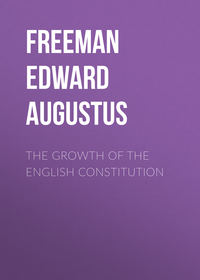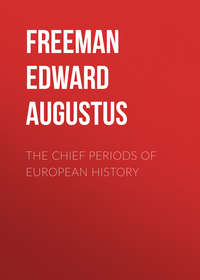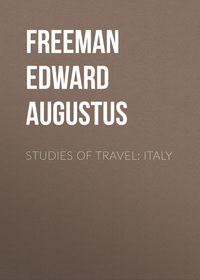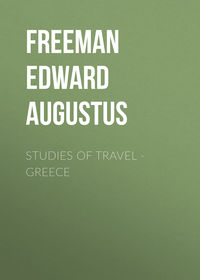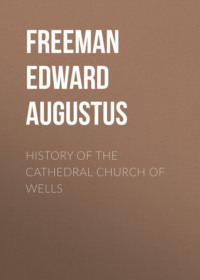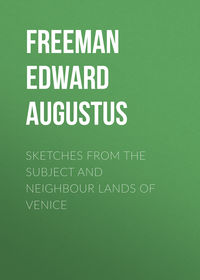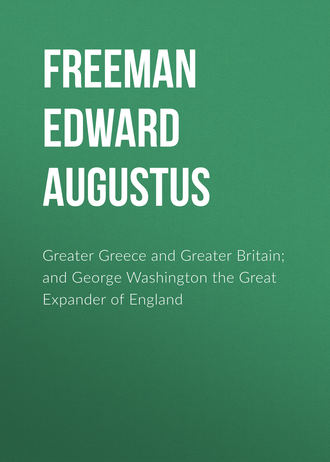 полная версия
полная версияGreater Greece and Greater Britain; and George Washington the Great Expander of England
That this now familiar name of “Empire” expresses a fact, and a mighty fact, none can doubt. The only doubt that can be raised is whether the fact of Empire is a wholesome one, whether it is exactly the side of the position of our island in the world which we should specially pick out as the thing whereof to boast ourselves. Empire is dominion; it implies subjects; the name may even suggest unwilling subjects. From one point of view the analogy which the word first suggests, the analogy with the first state that bore the name, with the ruling commonwealth of Rome, is perfect. The People of Rome were, in constitutional theory, lords and masters of their subject lands, those provinces which they held as folkland on a mighty scale, the estates to which the ruling people was not only a corporate sovereign but a corporate landlord. And so the People of Great Britain, if not in constitutional theory, yet in forms of daily speech which express the facts more truly than any constitutional theory, proclaims itself as the corporate ruler, perhaps the corporate landlord, of no small portion of the world. If I may quote a phrase which I have myself used in another place, the “corporate Emperor We,” that manifold Imperial being of which you and I and all of us rejoice to be members, ranks high indeed among the potentates of the earth. No phrase comes more readily to the lips of the patriotic Briton than that of “our Indian Empire;” and he speaks truly. For “ours” it is; we instinctively call it so; for “we,” through the Parliaments and Ministries which exist only by “our” choice, can legislate and administer for millions on millions of human beings, our subjects, our provincials, who have no voice in determining their own destiny, but who must humbly accept their doom from us. “We” hold India, “we” govern India; “we” sometimes, in our Imperial clemency, stoop to say that we govern it, not in our own interests but in the interest of those over whom we rule. We are minded, in short, in dealing with our provinces and with their subject inhabitants, to be an Emperor after the pattern of Hadrian, not an Emperor after the pattern of Constantius. But this is not our only Empire. We have too – the most familiar phrases daily repeat the form – a Colonial Empire. The instinctive phrase is true, true to the very letter. We – the same We that have an Indian Empire, have also a Colonial Empire. For an Empire it is. With reference to them also, I must again insist on the fact sometimes forgotten, that the freest of British colonies, those who can act with most unshackled freedom in their internal dealings, are not like the colonies of old Hellas or of older Canaan; they are still dependencies, provinces, subject lands, which have not escaped the absolute dominion of the corporate Emperor. That they can do ought for themselves is wholly of our grace and favour; they hold their practical independence as our gift, the gift of their corporate master. But, more than this, fact will sometimes over-ride theory even still nearer home. In theory every part of this United Kingdom has equal rights; there are no provinces, no subject lands; there is no favoured city or district whose inhabitants have any claim to bear themselves as the masters of any other. Yet truth will out; the corporate Emperor will assert himself in defiance of such pleasing theories. No man says, “We” must govern England, or Scotland, or Wales, or any part of England, Scotland, or Wales; but we every day hear the phrases, “We must govern Ireland,” “we” must do this and that for Ireland, while we should be amazed indeed if the people of Ireland, any more than the people of India, should take upon themselves to say back again, “We must govern England.” Nay, I have seen the full doctrine of Empire, the doctrine which makes the corporate Emperor, not only ruler but landlord in his provinces, set forth in the clearest words with regard to one part of what we still formally hold to be an United Kingdom with equal rights in every part of it. Not long ago I read something very instructive on this head in that one among English newspapers which we may be always sure says what its conductors really think, and not what it is for the moment convenient for party purposes to say. I there read of Ireland as an island which, if “we” had not governed, “we” had at least owned, for six hundred years. There are points in this saying on which it might be well to consult both a lawyer and a chronologer; but the doctrine of “Empire,” the doctrine that the people of one part of the United Kingdom are master and landlord over another part of the United Kingdom, could hardly be set forth more clearly.
The fact of Empire then cannot be denied. The burthens of Empire, the responsibilities of Empire, cannot be denied. They are burthens and responsibilities which we have taken on ourselves, and which it is far easier to take on ourselves than to get rid of. The only question is whether this our Imperial position is one on which we need at all pride ourselves, one about which it is wise to be ever blowing our trumpet and calling on all the nations of the world to come and admire us. Is there not a more excellent way, a way which, even if it is too late to follow it, we may at least mourn that we have not followed? Is it wholly hopeless, with this strange, yet true, cry of “Empire” daily dinned into our ears, to rise to the thoughts of the old Greek and the old Phœnician, the thought of an union of scattered kinsfolk bound together by a nobler tie than that of being subjects of one Empire or “peoples” of one sovereign? Will not the memories of this day lift us above this confused babble about a British Empire patched up out of men of every race and speech under the sun, to the higher thought of the brotherhood of the English folk, the one English folk in all its homes? Surely the burthen of barbaric Empire is at most something that we may school ourselves to endure; the tie of English brotherhood is something that we may rejoice to strive after. Cannot our old Hellenic memories teach us that that brotherhood need be none the less near, none the less endearing, between communities whose political connexion has been severed – alas, we may cry, that ever needed severing? The land in which Washington was born has not yet wholly forgotten the name of the “old dominion.” Might it not have been better if the word “dominion,” dominion on the part of the mother-land, had remained as unheard on the shores of English Virginia as it was on the shores of Hellenic Sicily? I have elsewhere traced in full the historic causes which led the colonists of modern Europe to plant only dependencies, provinces, of the lands from which they severally set forth, while the colonists of Phœnicia and Hellas planted free and independent cities. It is easy to trace the causes; it is yet easier to trace the results. Those results are written in the whole history of the Western hemisphere from the river of Saint Lawrence to the river of La Plata. It is written in the fact that, while in the colonies of the elder world the men who were most honoured were their founders, in the colonies of the younger world the men who are most honoured are their deliverers. Whom do we honour this day? Not a man who went forth from the mother-land to plant a settlement, but a man who helped to tear away the long planted settlement from the dominion of the mother-land. For the career of Washington, for the career of Bolivar, there was no room among the colonies of Ionia or the colonies of Sicily. Between them and their parents in the elder Hellas, there was no bitter remembrance of a time of parting, a time of parting in anger and in bloodshed. It would seem as if the colonial history of later times had picked out Korkyra and Kamarina as the model colonies of the elder time. I have said that among the worthies of old time the one whose fame is most akin to the worthy of our day is the deliverer of Syracuse, Timoleôn of Corinth. But that we describe him as Timoleôn of Corinth at once goes to the root of the matter. That we have to speak of Timoleôn of Corinth, while we can hardly speak of Washington of England or of Bolivar of Spain, brings out in its fullest life the difference between the colonial systems of the elder and the younger Europe. The deliverer of Syracuse was a man of Corinth, a man whom the mother-land sent forth to free her daughter alike from domestic tyrants and from foreign enemies. The deliverer of Virginia and her sisters was a man of Virginia, a man who had once played his part against the foreign enemies of the English name, but whose abiding glory was won by parting asunder the newer lands of England from the elder. I shrink from saying that he had to fight against tyrants or enemies – let us strive to veil the grievous fact under some gentler words – but so far as he had to deal with tyrants or with enemies, they were tyrants and enemies to be looked for in the mother-land. Timoleôn had to strive against strangers and hirelings, against Carthage and the motley hosts which she sent against Hellenic Sicily. Washington had to strive against strangers and hirelings, but they were strangers and hirelings whom the elder England sent to work the subjection of the younger. Timoleôn had to break no tie of allegiance; in freeing the daughter city he was carrying out the bidding of the mother. Washington had to trample allegiance under foot; he had to become, in legal form, a rebel and a traitor; he had to free the daughter-land in defiance of the bidding of the mother-land and their common sovereign. In short, his work, the work of his fellows, was to work the dismemberment of the British Empire. But in working the dismemberment of the British Empire, they wrought, I say once more, the true Expansion of England, the enlargement of the bounds of the English folk, and of all that the English bears with it to all its newly settled homes.
We have come back again to our paradox. What is the “Expansion of England?” Do the words mean simply the expansion of the dominion of England, or do they mean the expansion of England itself? Is it the expansion of England when Englishmen go forth to other lands, among men of other tongues, to toil, to strive, to rule, but not to dwell? The dominion of England may be expanded when men found a counting-house, a barrack, an office of government, a court of judgement, and when they have done their work in one of these, come back to enjoy their wealth or their honours in the land of their birth, the land which they mean to be the resting-place of their bones, the dwelling-place of their children. It is surely the expansion of England only when a new land is won for the English folk as an abiding-place for ever. When men go forth to found, not merely a seat of wealth or a seat of power, but a home where they may live and die, where they may leave their graves and leave their children to guard them, then is England itself expanded. So it was in Kent; so it was in Virginia; so it is at this day on countless shores and islands beyond the Ocean. There is no expansion of a land and its folk in the mere winning of barbaric dominion, or even in holding kindred or neighbouring nations under a rule which they love not. England is not expanded either by keeping “our” dominion over the Green Island that lies beside us to the West or by extending “our” dominion over the Golden Chersonêsos far to the East. Do not mistake me; to annex, to coerce, to hold in bondage, may, in some unhappy state of things, be a solemn and fearful duty; it can never be matter for rejoicing or for boasting. But there is matter of rejoicing, so far as boasting is lawful, there is matter for boasting, whenever the English folk wins a new land, not merely to rule over but to dwell in, a new land in which the speech, the laws, the traditions of England may be as much at home as they are here in this our England in Britain. What is England? The old Teutonic name speaks for itself; it is the land of the English, the land of the English wherever they may dwell. Wherever the men of England settle, there springs to life a new England. There was a day when Massachusetts was not England; there was an earlier day when Kent itself was not England. The elder and the younger land, the land beyond the sea and the land beyond the Ocean, have been made England by the same process. Men went forth from the first England to found a second, and from the second England to found a third. In our onward march we passed from the European mainland to the European island and from the European island to the American mainland. In each case there was a making of England, an expansion of England; John Smith on the shore of Virginia did but go on with the work which Hengest had begun on the shore of Kent. In each case the newer England became the greater; men crossed the sea to found a greater England than the first, and they crossed the Ocean to found a greater England than the second. In each case they expanded England; but they did not in both cases expand the dominion of England. At Ebbsfleet, the Naxos of Britain, men founded a new England in Britain as independent of the older England on the mainland as the new Hellas in Sicily was independent of the older Hellas by the Ægæan. With the second voyage it was not so; the third England beyond the Ocean did not arise free and independent; it needed an after-work, an after-work never needed in the second, to make it so. And that work was surely an expansion, an expansion of England. We come once more to our paradox; may it not be that England herself may be expanded by the very cutting short of her dominion? Again, what is England? Do we mean by it simply the dominions of the Crown of England – or rather the dominion of a Crown of whose kingdom the British England is but a part? Or do we mean by it the land of the English folk, wherever they may dwell? Is there any contradiction in holding that the land of the English folk may be made greater, greater in mere physical extension, greater too in all that makes a folk and an English folk, by changes which cut short the mere dominion of the English Crown, which, in other words, work the dismemberment of the British Empire? May not the œcumenical England, the whole congregation of English people dispersed throughout the world, become greater, as the mere dominion of part of England, the dominion of this second England, this insular England, this British England, becomes narrower? Are we to be told that men of English blood, of English speech, of English law, ceased to be English, because they ceased to be under the rule of the sovereign of the British England? Once more back again to our ancient memories. Call up once more a man of Carthage; ask him if he ceased to be Phœnician, if he threw away the memory and the fellowship of the Phœnician name, because, in his new home on the shore of Africa, he owed reverence only and not allegiance to the mother-city on the shore of Syria? Call up once more a man of Syracuse – I will not say one who helped on one moonlight night to thrust down the Ionian invader from the steeps of Epipolai or who plied his oar for the Dorian city in the last fight in the Great Harbour – throw a veil over the strife of Greek with Greek, as we will throw a veil over the day of shame when men from the second England wrought a barbarian’s havoc on the rising council-house of the third, – let us rather say, call up one who, on the day of Salamis, helped in a work no less than that of Salamis by the side of Gelôn at Himera, call up one who struck the last blow for freedom and Hellenic life amid the breached walls and burning houses of Selinous, one who marched forth with the deliverer from the mother-land to win the wreath of Hellenic victory by the banks of Krimisos – ask such an one if he was less a Greek, if he had less share in the name and brotherhood of Greece, because his city between the two Sicilian havens was a commonwealth as free and independent as the elder city between the two Peloponnesian gulfs? True, the man of Carthage, the man of Syracuse, had, unlike the man of Virginia or Massachusetts, no yoke of the motherland to cast aside; but surely the man of Virginia or Massachusetts was, if anything, less English when he knew dependence, when he had to obey the decrees of an assembly in whose choice he had no part, than he became when he rose to the full age and stature of an Englishman by winning those full rights of freedom which Carthage and Syracuse had from the beginning. We have so strangely passed away from the political conceptions of earlier ages, that the word colony is held to imply dependence. In the old Thirteen lands of America we hear of the colonial period as meaning the time of imperfect freedom; when full freedom is won, the name of colony is cast away. And yet surely a colony of England was not meant to be a mere Roman colonia, a mere Athenian κληρουχία, a garrison to hold down a subject province; it was surely meant to be, like a Greek ἀποικία, a new home of English life and English speech. In that nobler sense of the word, a colony which is not independent has not risen to the full rank of a colony; it is hardly a home for the new folk of the mother-land; it is little more than an outpost of its dominion. Surely the Englishmen of those Thirteen lands, who had unhappily to fight their way to the full rights of Englishmen, did not cease to be Englishmen, to be colonists of England, because they won them. Surely – I have said it already and I may have to say it again – they became in a higher and truer sense colonies of the English folk because they had ceased to be dependencies of the British Crown.
I speak of Thirteen lands; and thirteen is as it were a magic number in the history of federations. It is a memorable number alike in the League of Achaia and in the Old League of High Germany. But in none of the three was Thirteen to be the fated stint and bound among the sharers in the common freedom. Thirteen stars, thirteen stripes, were wrought on the banner of the United States of America in their first day of independence, the day of their second birth as truly and fully a second English nation. Look at that banner now; tell the number of those stars and call them by their names, each of them the name of a free commonwealth of the English folk. See we not there the expansion of England in its greatest form? See we not there the work of Hengest and Cerdic carried out on a scale on which it could never have been carried out in the island which they won for us? The dependent provinces of England stretched but in name to the banks of the Father of Waters; from the border ridge of Alleghany, as from the height of Pisgah, they did but take a glance at the wider land beyond. The independent colonies of England have found those bounds too strait for them. They have gone on and taken possession; they have carried the common speech and the common law, beyond the mountains, beyond the rivers, beyond the vaster mountains, beyond the Eastern Ocean itself, till America marches upon Asia. Such has been the might of independence; such has been the strength of a folk which drew a new life from the axe which did not hew it down, but by a health-giving stroke parted it asunder. It may be, it is only in human nature that so it should be, that the fact that independence was won by the sword drew forth a keener life, a more conscious energy, a firmer and fiercer purpose to grow and to march on. The growth of a land free from the beginning might perchance have been slower; let it be so; a slight check on the forward march would not have been dearly purchased by unbroken friendship between parent and child from the beginning.
It is a strange feeling which comes over us as we stand by the southern bank of the Ohio, as we look over the wide stream which once parted French and English lands, as we look from what once was dependent England into what once was dependent France. And as there we muse, we think of the earlier work of the worthy of to-day. We think of the share that he had in changing so large a part of dependent France into what was still for a while to be dependent England. Other names from either side of Ocean press on us as we trace out that old border-land and think upon its history. I found something to muse upon where amid the smoke of Pittsburg the name still dwells of a chief worthy of my own land and of my own college. But his name comes first who was to play his part in a twofold expansion of England, who was first to help in the mere enlargement of her dominion, and then to be foremost in the mightier work of enlarging her very self by snapping the dominion of one part of the English folk over another. Washington, fighting for one King George, did well; Washington, fighting against another King George, did better. Look again at Washington’s own land, and see how healthy is the process of dismemberment to a free commonwealth. Look at Virginia, mother of Presidents, mother of States, the Megalopolis of a new Achaia, worthy of a place even beside the city of Philopoimên and Polybios. If we hold that England is expanded by the dismemberment of her dominion, the old dominion of England was expanded by the dismemberment of herself. The land of the English folk is enlarged as free Virginia throws off free Kentucky, as the Thirteen stars admit a fourteenth member of the constellation. In that starry firmament there is no lost Pleiad; even the Lone Star needed not long to shine in loneliness. The man of this day and his fellows lighted a candle which cannot be put out, a candle which is ever handing on its flame to lesser lights which may one day be the greater. And in the wider view of the English folk, in the wider view of England, it was in truth in and for England that they lighted it.
* * * * *On this twenty-second day of February I have said but little, I have time left to say but little, of the man by whose birth that day was made memorable. I cannot speak now of the modest virtues of one on whom greatness was indeed thrust, a greatness which consisted, not in the brilliancy of fitful genius, not in the growth of any one gift so as to overshadow and overwhelm others not less needful; but in the equal balance of all, the unswerving honesty, the native dignity, which enabled him to play a worthy part on so many stages, to act wisely and righteously in any post to which the chances of a chequered life might call him. Still less have I time this day to speak of his fellows, of the memorable band of which he was but the foremost, on one of the many sides of his life perhaps hardly the foremost. When we speak of George Washington and his work, the kindred work of Alexander Hamilton must never be forgotten. Shall I, in the course of my office here, ever reach those times? Or shall I keep to my old familiar ground of Sikyôn and Megalopolis, knowing well that there is one among us who can deal better than I can with the federal history of Schwyz and Zürich, that there is another among us who can deal better than I can with the federal history of Pennsylvania and Rhode Island? Be this as it may, we deal this time, this twenty-second of February, with an idea rather than with a man. We look at the man in his work. And we would hold up his work as a model. There are other lands in which his work may again be done, and done more peacefully. No new Bunker Hill, no Saratoga, no Yorktown, would be needed to call into being other independent Englands as free and mighty as either the elder or the younger. Other continents beside Europe and America have become homes of the English folk, and the homes of the English folk in those other lands may not always lag behind the great home of the English folk between the Oceans. The tale of “the English in America” is now in telling, in most worthy telling, here among us. Some other pens in times to come may write the tale of “the English in Australia,” of “the English in Africa,” and they may have to trace the story after the same pattern. Let Federation grow and prosper, so long as no contradictory adjective is tacked on to a substantive so worthy of all honour. Where there is Empire, there is no brotherhood; where there is brotherhood, there is no Empire. I shall hardly see the day; but some of you may see it, when the work of Washington and Hamilton may be wrought again without slash or blow, when, alongside of the Kingdom of Great Britain and the United States of America, the United States of Australia, the United States of South Africa, the United States of New Zealand, may stand forth as independent homes of Englishmen, bound to one another by the common tie of brotherhood, and bound by loyal reverence, and by no meaner bond, to the common parent of all.
APPENDIX


